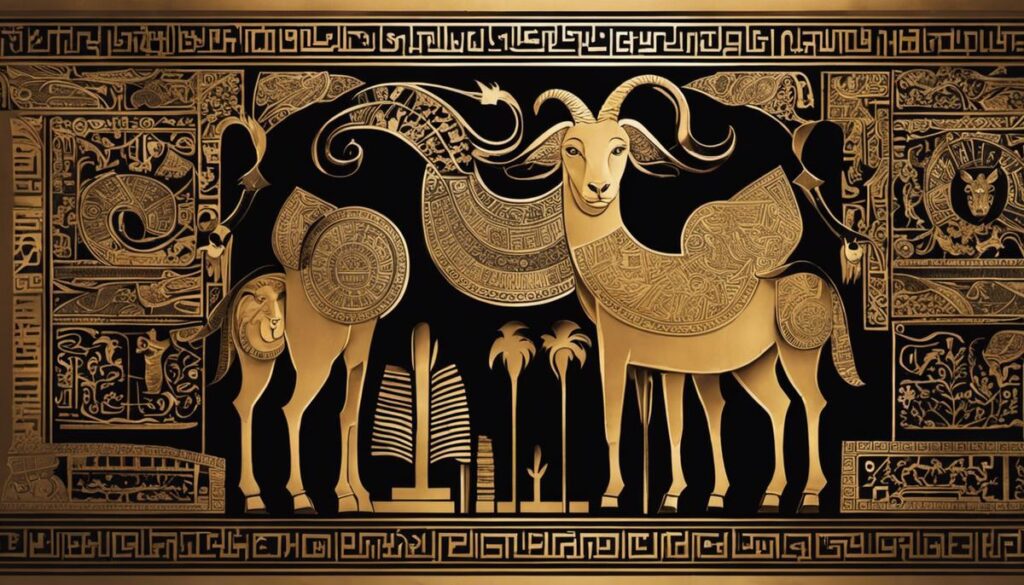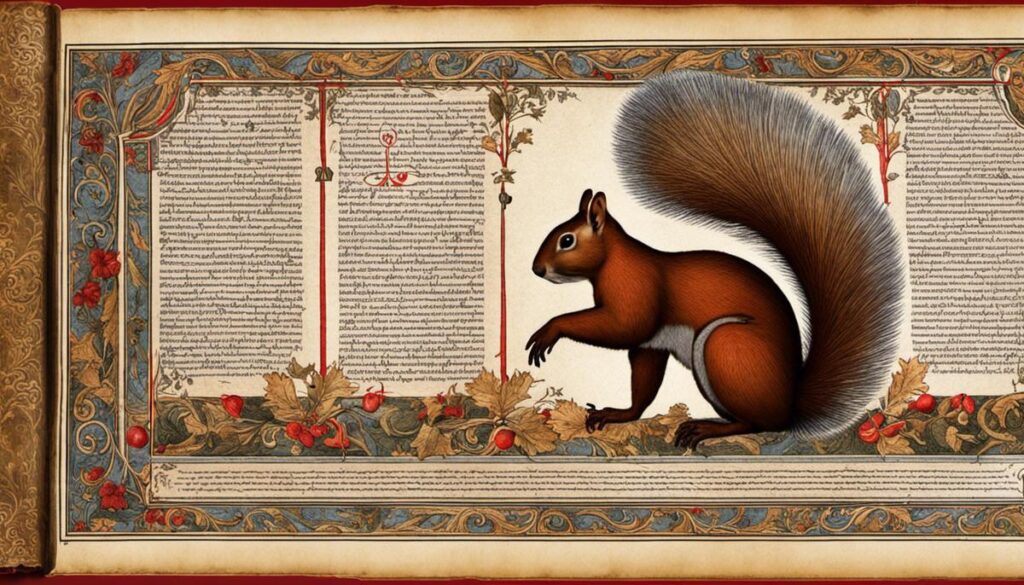Symbolism abounds in the rich and varied tapestry of biblical narratives, embodying profound ramifications that extend beyond the surface meanings of the text. An element of this symbolism is the depiction of various animals—one of which is the donkey. From the biblical old testament tales to the fresh revelations of New Testament, the donkey often emerges as a pertinent figure. As part of this discourse, we delve into the symbolism of the donkey in biblical scripture and how these symbolisms further permeate into the realm of dreams. Furthermore, we intricate upon the role of dreams in biblical interpretations, underlining key narratives including the dreams of Joseph and Daniel, and their significance in the overall context.
As our exploration transcends the physical, journeying into the dream world, we scrutinize the potential interpretations and symbolism of encountering a donkey in this realm. Applying diverse cultural, psychological and spiritual perspectives that shape our dream interpretations, we weave together a comprehensive understanding of possible implications. Combining these threads, this discourse aims to establish a meaningful connection between biblical and dream interpretations, specifically related to the donkey motif.
Symbolism of Donkeys in Biblical Lore
The Symbolic Reputation of Donkeys in Biblical Texts: An Insightful Study
Biblical text, with its rich fabric of intricately woven stories and characters, often uses symbols to convey deeply nuanced messages. Remarkably, one of the most consistent..yet underappreciated symbols in these sacred scripts is that of the donkey. Widely represented in biblical texts, the donkey serves in various roles, playing a substantive part in the unfolding spiritual narrative.
To begin, it is noteworthy to mention that the donkey’s introduction in biblical accounts starts on a high note. It serves an honorable role, such as in the story of Abraham, where it is used to transport the wood for the sacrifice of Isaac (Genesis 22:3). Thus, early scriptural references establish the donkey as a creature of service and trustworthiness.
The donkey’s symbolic representation takes a shift in the book of Numbers. The intriguing account of Balaam’s donkey (Numbers 22:1-35), depicts it as an instrument of divine speech and a mediator between humans and the divine. This implies that even a humble donkey, often disregarded in human society, becomes an essential vessel of divine messages.
In the context of law and governance, donkeys also find mention in Exodus 23:4, where the Israelites are instructed to help their enemies’ donkeys if found going astray. This clause showcases the donkey as a symbol of kindness and goodwill that transcends personal discord and animosity, a concept deeply entrenched in Christian ethics.
Undoubtedly though, the pinnacle of the donkey’s symbolic representation comes in the account of Jesus’ entry into Jerusalem (Matthew 21:1-11). Here, the donkey is no longer just a beast of burden but becomes a royal mount, carried by Jesus Himself. This event, popularly known as Palm Sunday, represents the donkey as a symbol of peace, humility, and royal dignity.
Further, it is crucial to understand the donkey’s symbolic representation in its historical context. During the biblical era, the donkey was widely used for tedious labor, and yet it was a prized possession appreciative for its endurance, stubbornness, and independence. This ability to serve in laborious conditions yet maintaining a sense of dignity parallels the human perseverance of the believers amid adversity, thus deepening the donkey’s symbolism.
In sum, through varied roles – as a dutiful servant, divine messenger, symbol of compassion, and a bearer of royal majesty – the donkey emerges as a versatile symbol in biblical texts. This representation mirrors the dynamic human experiences in the divine walk of faith, thereby enriching the interpretation of these sacred texts.
Thus, the donkey in the biblical scriptures is not just an average beast of burden. Instead, it crowns a position of unique honor, standing tall as an emblem of humility, peace, dignity, and, above all, divine providence. Missioned with the conveyance of profound spiritual truths, the donkey truly earns its place in biblical symbolism.
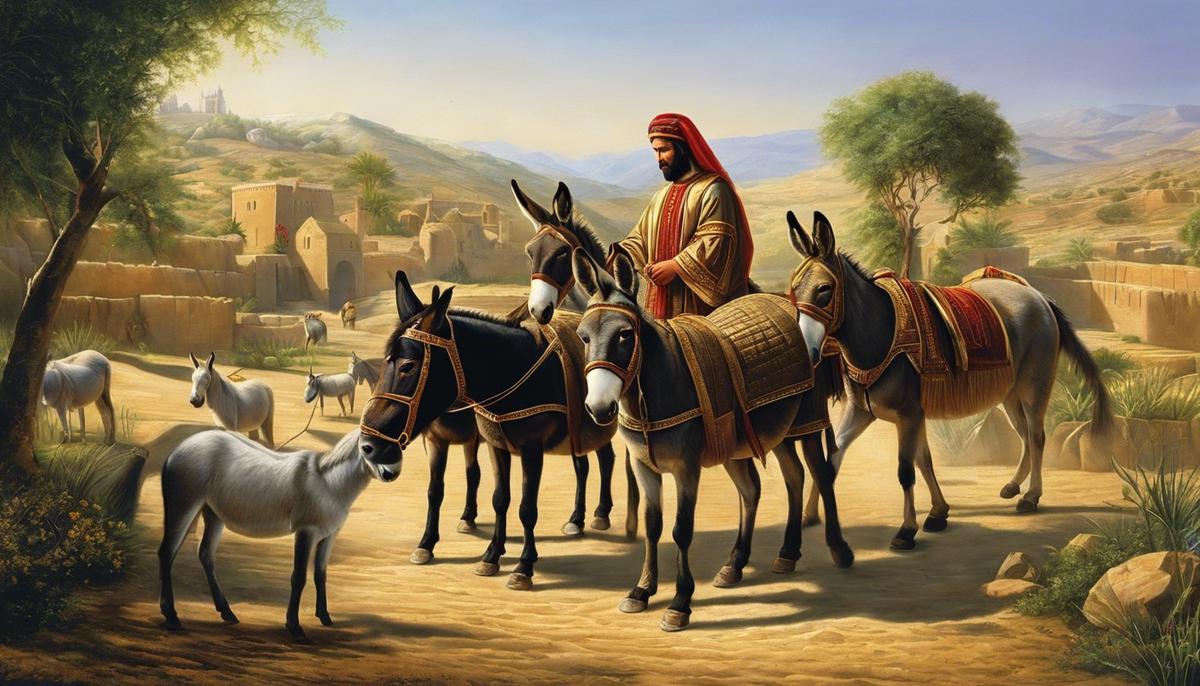
Dreams and Biblical Interpretation
In biblical scholarship, researchers look to ancient text, historical context, and prevalent cultural norms of the period to interpret dreams, which were viewed as significant narrative devices. Dream interpretation in biblical times was often seen as a conduit for divine communication; dreams were taken seriously as they were thought to be messages conveyed by God. Scholars elucidate messages behind these dreams by taking into consideration the socio-religious background of the era, as well the situational context in which the dream occurred.
Remarkably, dream interpretation can reveal enlightening information about the personality of characters portrayed in the Bible. For instance, Joseph’s prophetic dreams in Genesis illustrate his natural penchant for leadership. At the same time, they subtly hint at his initial naivety, which would eventually give way to wisdom gleaned from harsh experiences. Undeniably then, biblical dreams also serve as a lens through which readers can gain deeper understanding of a character’s progression throughout the narrative.
In a detailed study of biblical dreams, a distinctive recurrent theme is their prophetic nature. Dreams were perceived as an omen, revealing future events. The dream of the Pharaoh in Genesis 41 was not merely an account of extra-large grain swallowing up other grains, but a forewarning of seven years of famine that would follow seven years of fruitful harvest. Thus, dream interpretation becomes a significant part of biblical prophesy, a pivot around which major events would sometimes turn.
An intriguing aspect of biblical dream interpretation is its complexity and depth. Dreams are depicted with layers of hidden meanings and messages, veiled beneath the symbols presented in the dream. For example, King Nebuchadnezzar’s dream of a metallic statue in the book of Daniel was not a mere iconographic illusion, but symbolic of the sequence of great empires that were to come. The exact composition and structure of the elements in the dream held the key to its interpretation, which is where biblical scholars meticulously unravel the meaning.
However, it’s vital to note that not all dreams in the bible serve a divine or prophetic purpose. The bible warns about ‘false dreams’ propagated by false prophets to manipulate people in Jeremiah 23. Therefore, scholars exercise caution and demonstrate a comprehensive understanding of context when distilling interpretations from biblical dreams.
To reiterate, biblical scholarship advances the interpretation of dreams through a multifaceted approach that includes rigorous historical, cultural, and contextual analysis. This methodology successfully unravels the profound depth of messages behind seemingly simple narrations of dreams, enriching our understanding of biblical texts.
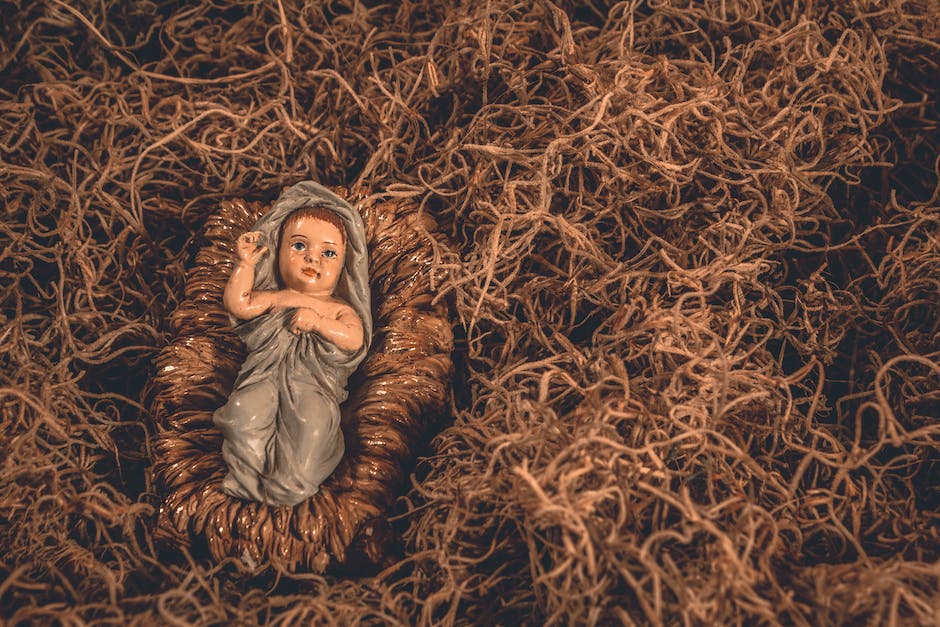
Donkeys in Dream Interpretation
Moving forward, we delve deeply into the nature of dreams as understood by many ancient societies that saw them as vital and potent channels through which the divine realm conveyed profound messages. This traditional perspective is notably documented in the Holy Bible, where dreams routinely served as significant narrative devices. Particular attention is given to the symbolic elements in dreams, as these are believed to hold critical meanings and insights.
In biblical context, the essence of a dream is not viewed as a mere figment of imagination. Instead, it’s viewed as a divine communique that carries spiritual revelations, warnings or prophecies. Owing to such a perspective, dreams were accorded immense reverence and diligently analyzed by individuals or trusted diviners.
In the realm of dream interpretation, the donkey appears as one of the symbolic elements with extensive allegorical bearings. Given the socio-religious background and situational context, this particular animal can have multifarious interpretations. However, it’s pertinent to remember that every dream is as unique as the individual who sees it. Therefore, the interpretation of a dream symbol, like the donkey, must take into account the specific circumstances of the dreamer and the dream context.
For a biblical character, dreaming about a donkey could be a reflection of their personal attributes, a foretelling of future events or even a divine message about their place in larger human experience. The symbol of the donkey in a dream might be an echo of its resilience and stubbornness—an allegorical nod to the dreamer’s own endurance or tenacity. Equally, it can symbolize humility, peace, or dignity, depending on the individual’s circumstances or the sociocultural context.
The prophetic nature of biblical dreams suggests seeing a donkey might also be an omen, indicating change, hardship, or goodwill. The donkey, because of its rich biblical symbolism, embraces an array of analogous possibilities.
Amid the complexity and depth of biblical dream interpretations, caution and comprehensive understanding are paramount. A dream about a donkey might mean one thing for one person and something different for another, contingent on situational contexts in their lives, their personal perspectives, or their socio-religious backgrounds.
In conclusion, the symbolic interpretation of seeing a donkey in a dream is enriched by the versatile symbolism the animal holds in biblical stories. Whether it represents resilience, peace, humility, forewarnings or divine communication depends largely on the dreamer’s circumstances. Emphasizing the multifaceted approach in biblical scholarship, understanding the symbolism of donkey in dreams isn’t a straightforward undertaking, but one that requires deep and careful reflection. This symbolic richness that transcends literal interpretation further underlines the depth of biblical symbolism and its bearing on dream interpretation.
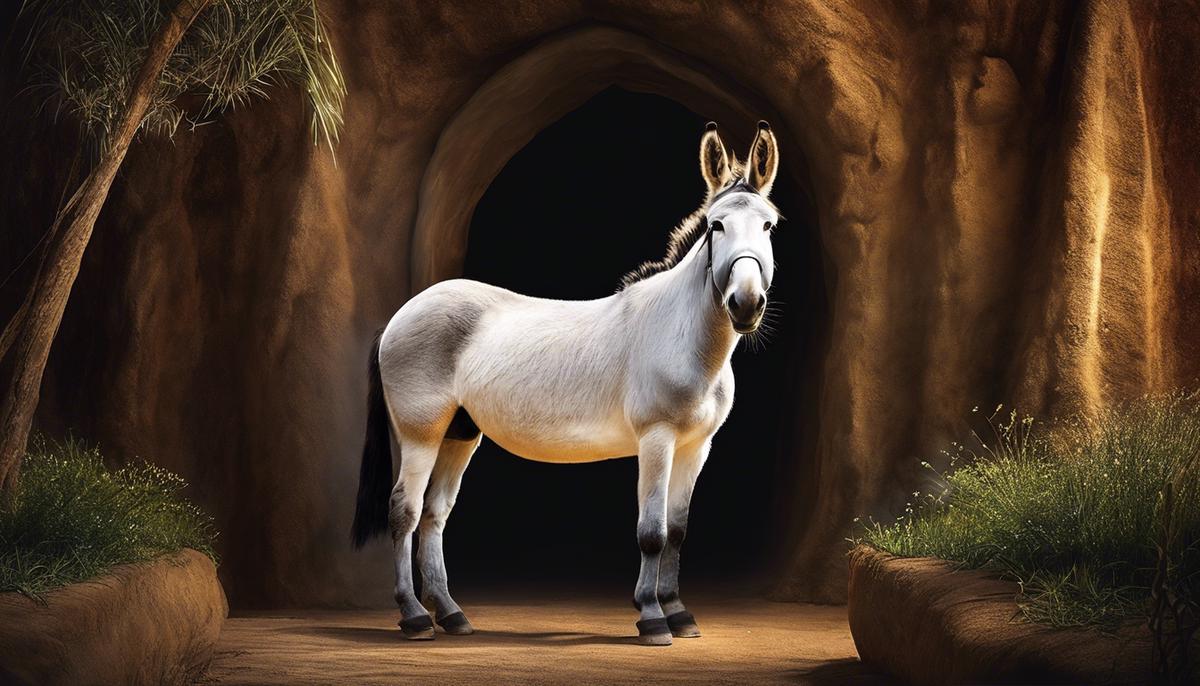
Connecting Biblical and Dream Interpretations
In traditional interpretations of dreams, the symbolism of the donkey bears a broad spectrum of meanings reflective of the richness of human psychology. This gives dream interpreters the leeway to analyze the dream based on the individual’s unique context. Seeing a donkey in dreams can symbolize stubbornness, hard work, or even hint at a personality being overburdened. Similarly, it can signify intelligence, agility and single-minded perseverance, echoing the traits of this humble beast of burden in real life.
When empirical psychology and biblical symbolism convene, however, the interpretation of the donkey undergoes a profound transformation. Biblical symbolism introduces a divine dimension to every symbol that differs from the mundane definitions provided in modern dream interpretation glossaries. So, when one dreams of a donkey, the subconscious is not only communicating their reality but also tapping into a collective spiritual and cultural heritage.
Analogously to the study of biblical symbols, the examination of dreams in the Holy Scripture offers a different perspective on symbolic interpretation. While traditional dream analysis often veers towards a personal and subjective understanding, biblical dream deciphering stresses on the roles of symbols as mediums of divine messages. Our dreams function as a symbolic language, within which the figure of a donkey, given its multiplicity of meanings, provides a truly eclectic narrative, every strand unraveling a new message.
Thus, bridging the gap between traditional dream interpretation and biblical symbolism demands an understanding of the socio-cultural and historical backgrounds that inform these symbolic meanings. It requires treating donkey dreams not only as reflections of individual experiences but also carriers of prolific biblical messages. It calls for an intricate cross-reference between personal circumstances and situational relevance, as outlined in the biblical context.
In essence, a donkey in a dream cannot be merely dismissed as a simple symbol of stubbornness or laborious endeavor. Instead, it becomes an emblem populated with messages of humility, peace, and divine interaction. Its significance transcends the personal sphere, becoming a universal symbol representing a wide range of human experiences and teachings as revealed through biblical narratives.
When dreaming about donkeys, therefore, it becomes paramount to navigate between these two perspectives. While the individual’s subconscious projections cannot be overlooked, a verse by verse examination of biblical narratives and the context surrounding the appearance of the donkey can further enhance our understanding. The deeper these narratives are pondered upon, the more intertwined they become with our contemporary understanding, rendering biblical dream interpretations a significant tool for self-analysis and spiritual growth.
Therefore, peering through the lens of biblical symbolism while interpreting dreams is like unlocking a treasure trove of symbolic significance, transforming the humble donkey from a simple domestic animal into an emblem of divine intervention, humility, and perseverance. It underlines the need for a nuanced and comprehensive understanding of dreams, interwoven with symbols drawn from the rich tapestry of biblical narratives. This practice, undoubtedly, enriches our comprehension of dreams and enables a profound exploration of the cerebral terrains of our subconscious.
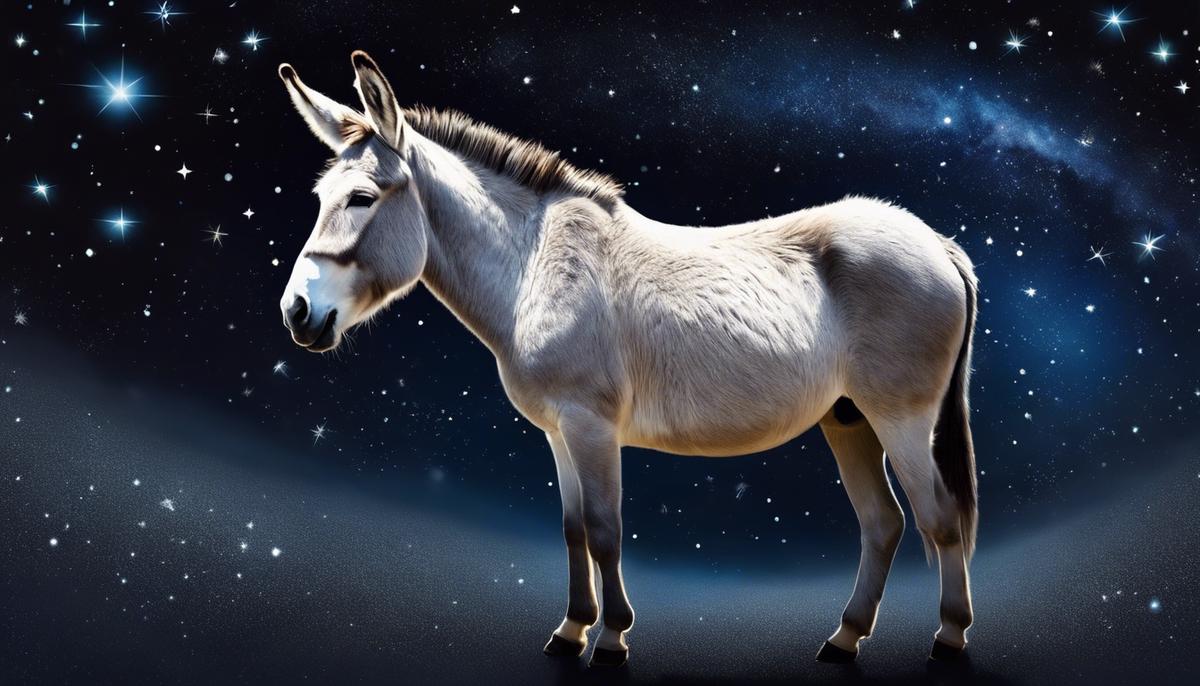
Throughout this exploration, we have endeavored to shed light on the multifaceted symbolisms of donkeys in biblical scriptures and dreams, intertwined within a cultural backdrop. A meticulous analysis of the role of this humble creature in biblical narratives presented us with a range of interpretations, all heavily influenced by the nuanced cultural contexts of the eras they were forged in.
From there, we embarked on a similar quest to understand dream interpretations, exploring key biblical examples and comparing them to modern theories. As we delved into the world of dreams about donkeys, we broadened our outlook, learning how personal, cultural, and spiritual factors impact the interpretation of these dreams. Uniting these themes, it is hoped that the enlightenment gleaned about both biblical and dream interpretation guides the understanding of the metaphorical donkey and its significance. Thus, the journey to unravel the biblical significance of dreaming about donkeys may serve as a gateway to a broader, deeper comprehension of symbolic associations and spiritual insights.






